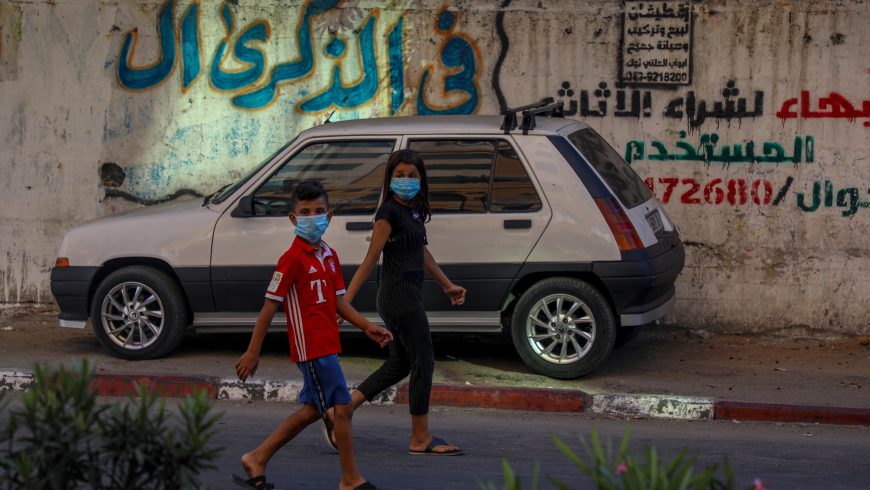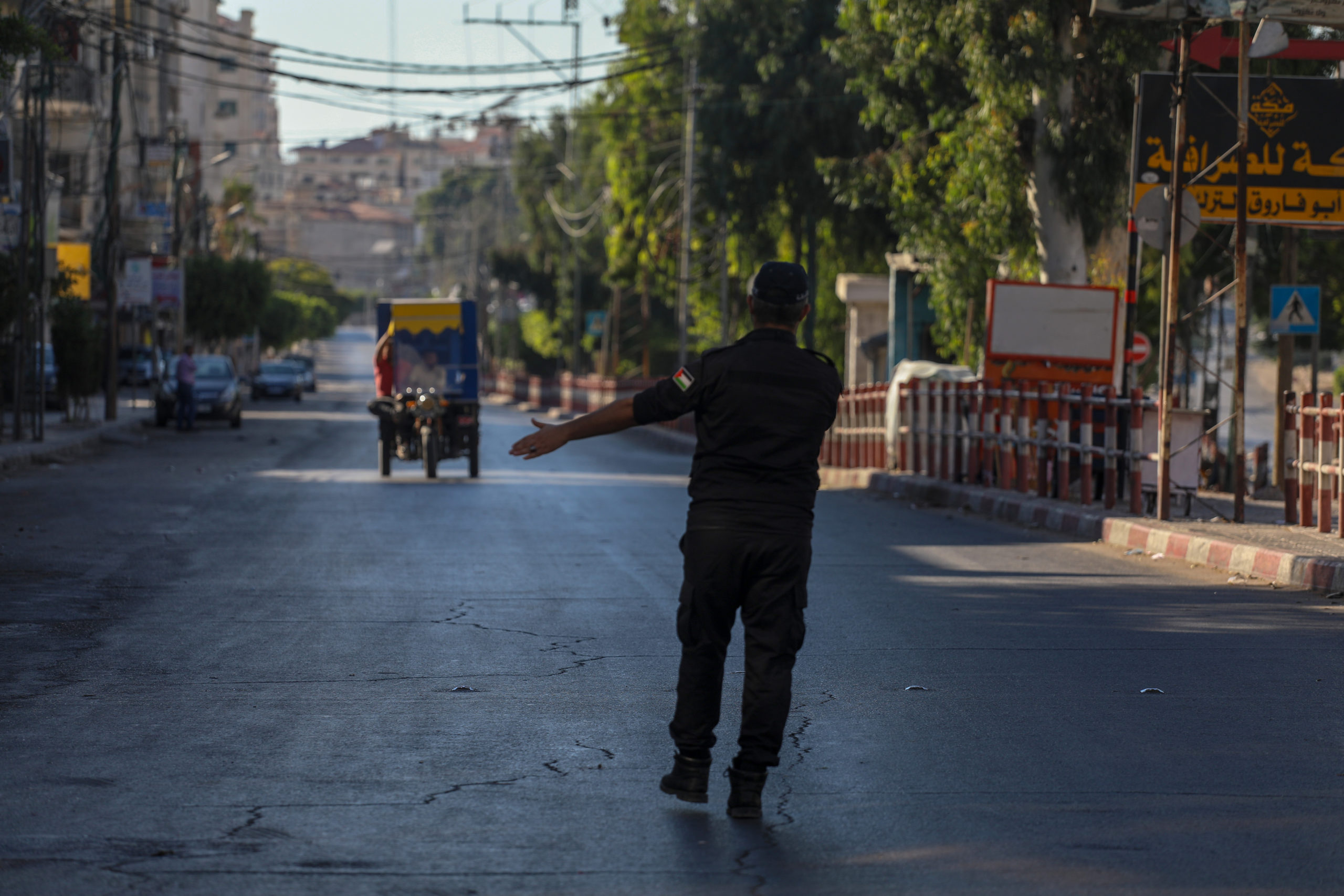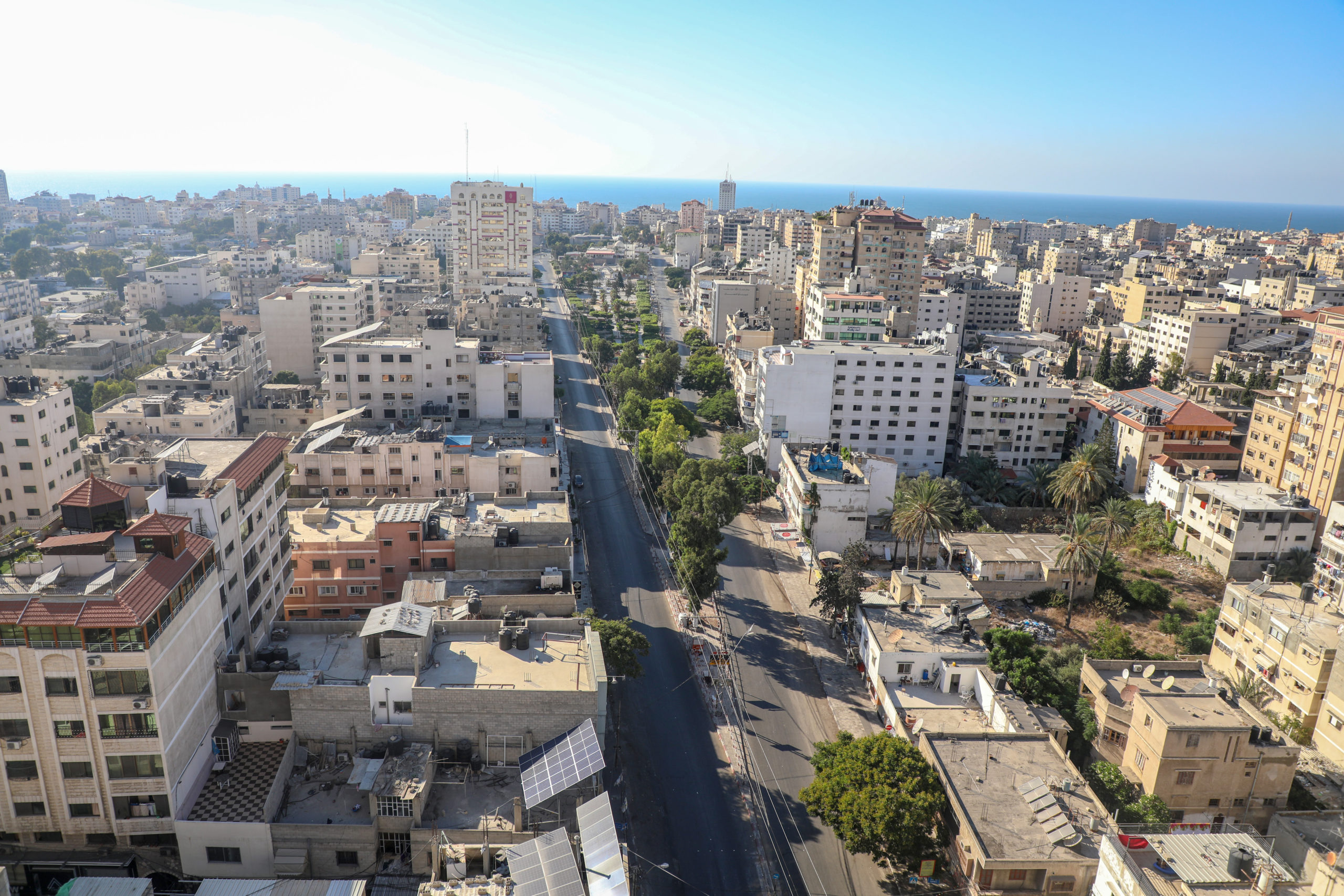Written by Muneeb Abu-Ghazaleh, Country Director of Islamic Relief in the Occupied Palestinian Territories

The Covid-19 crisis is like a snowball that keeps expanding. I worry it may become an avalanche that engulfs us all, warns Muneeb Abu-Ghazaleh, Country Director of Islamic Relief in the Occupied Palestinian Territories.
The blockade on Gaza has caused much suffering over the years, but it had one unexpected benefit: it helped keep coronavirus out – until a few days ago. People with symptoms were taken straight from the entry gates into quarantine, and this meant cases were contained within the quarantine centres.
“It turns out that the blockade does have a benefit,” people remarked sarcastically. Sadly Gazans no longer have even that slim comfort now. At about 8pm on Monday 24 August, I heard the news that four Covid-19 cases had been found outside of the quarantine centres.
The whole Strip panicked.
Expecting lockdown, many people rushed to grocery stores and bakeries to buy food. At 11pm a 48-hour curfew was announced. Some people were able to get the supplies they needed before the shops were forced to close, and some were not. I was one of the unlucky ones. I went to the supermarket where I usually go to buy bread daily; shelves were empty. I then went to a bakery to find a long queue outside. I went to a second and third one; all the same. I decided to buy wheat and make bread at home.
Despite the warnings and stories we read from all over the world, we were still caught out when Gaza locked down. God only knows how long it will continue.

An invisible crisis inflicting more wounds on Gaza
Unlike any other crisis that hit Gaza before, the Covid-19 crisis is invisible. It is like a snowball that keeps expanding. I worry that it may become an avalanche that engulfs us all.
Gaza is already exhausted after 13 years of a very tight embargo, one imposed on two million people, half of whom are children. The economy has collapsed and the health system is close to breaking point.
To make matters worse, Gaza barely used to get eight hours of electricity every 24 hours. This means no water supply, which directly contributes to pollution and the spread of disease. Increased restrictions on the main border crossing, imposed this week, have led to further fuel shortages. We only get four or five hours of electricity per day now.
Municipalities and public service institutions have for some time been asking Islamic Relief to support with fuel for generators, but the needs here are so great that we lack the resources to help with this on top of everything else we do.
Islamic Relief’s focus is to provide food for families in lockdown. Around 50,000 families are expected to become food insecure after losing their daily income because of the lockdown. We are also supporting hospitals with essential needs. Coronavirus cases have been discovered at the Strip’s main hospital.

Families face deepening poverty and suffering
My children, like many other students, have already lost half of the last year since schools closed to curb the spread of the virus. Now the new school year has begun we looked forward to children restarting their education, but with coronavirus in our communities, the schools have closed again.
I worry not just about their lost education, but also about the immense stress children are under as they are stuck at home – and of course, the anxiety they cause their parents and guardians! The younger children are easier, but teenagers are struggling with the loss of independence and the social isolation that comes with lockdown.
As a humanitarian worker as well as a father, I worry how the most vulnerable people will survive the lockdown. I believe that no more than 20% of Gazans were able to stock up on supplies in the hours before lockdown. The rest – the poorest, older people, people with disabilities – are going without.
Many rely on charity to meet their basic needs. Without a refrigerator or electricity, they have no way to store fresh food. In normal circumstances, Islamic Relief would be a lifeline for these households but our operations are suspended in the lockdown and the shops are closed.
How will they eat and feed their children now? How with older people and those who are sick get the medication they need? I want to help them.
Islamic Relief is determined to help those who need us
The Islamic Relief emergency team will seek permission to work through this crisis as we have in all other emergencies, and we will do what we can to supply families with food and hospitals with their essential needs.
For months, we have been providing nutritious daily meals to cancer patients whom hospitals could not feed. During one of my hospital visits, a woman told me, “I never had a meal as delicious and clean as this one. I thank God for sending Islamic Relief to us.”
I am determined to find a way to resume providing these meals. God knows, these patients are already suffering so much – they should not have to go hungry too.
With our strong network of local partners all over the Gaza Strip and with strict protection and precautionary measures in place, Islamic Relief must take the calculated risk and go out to help.
Since March we were providing daily meals and water to people in quarantine, including food during Ramadan. We have provided disinfecting materials for schools and public places. We are also providing ICU beds to hospital Covid wards.
Now with the new cases discovered within communities and the lockdown imposed, Islamic Relief will soon start providing vulnerable families with their basic needs again, as well as supporting health institutions so they can continue to provide essential services to the community.
Islamic Relief has never let the people of Gaza down, through every crisis, and insha’Allah we will get through this one too.
Please donate to our Gaza Emergency Appeal.